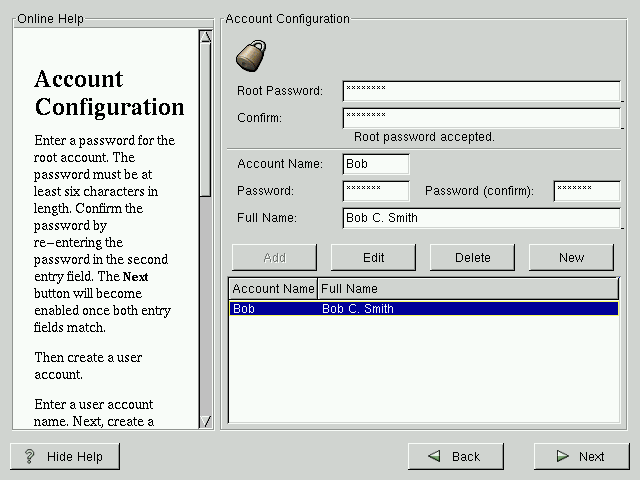Account Configuration
The Account Configuration screen allows you to set your root password. Additionally, you can set up user accounts for you to log into once the installation is complete (see Figure 6-12).
Setting the Root Password
The installation program will prompt you to set a root password for your system.
The root password must be at least six characters long; the password you type is not echoed to the screen. You must enter the password twice; if the two passwords do not match, the installation program will ask you to enter them again.
You should make the root password something you can remember, but not something that is easy for someone else to guess. Your name, your phone number, qwerty, password, root, 123456, and anteater are all examples of poor passwords. Good passwords mix numerals with upper and lower case letters and do not contain dictionary words: Aard387vark or 420BMttNT, for example. Remember that the password is case-sensitive. Write down this password and keep it in a secure place.
 | Please Note |
|---|---|
The root user (also known as the superuser) has complete access to the entire system; for this reason, logging in as the root user is best done only to perform system maintenance or administration. |
Setting Up User Accounts
If you choose to create a user account now, you will have an account to log in to once the installation has completed. This allows you to safely and easily log into your computer without having to be root to create other accounts.
Enter an account name. Then enter and confirm a password for that user
account. Enter the full name of the account user and
press
You can also choose New to add a new user. Enter the user's information and use the Add button to add the user to the account list.
You can also Edit or Delete the user accounts you have created or no longer want.
